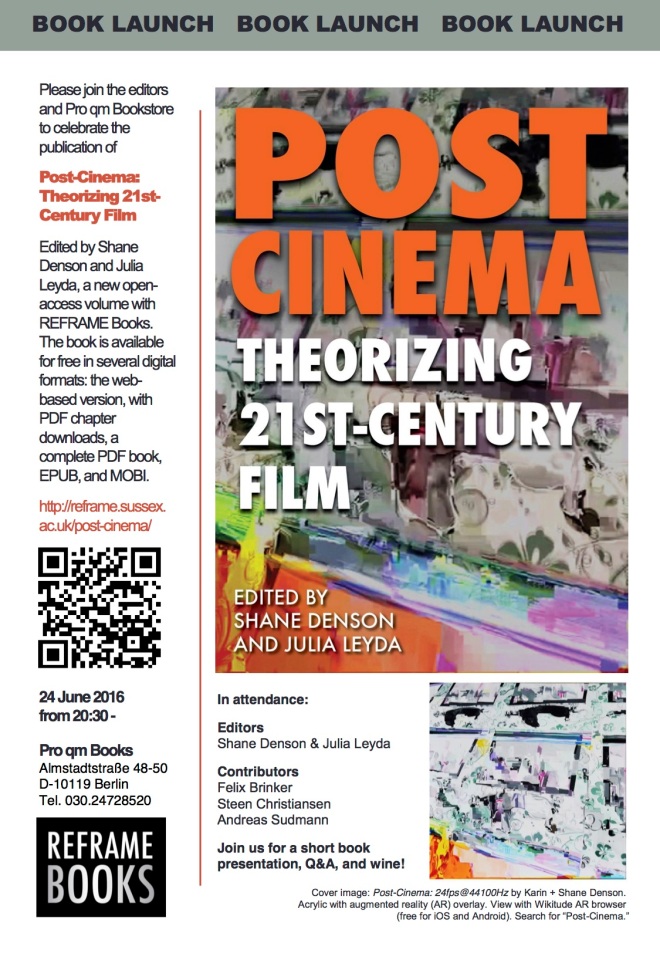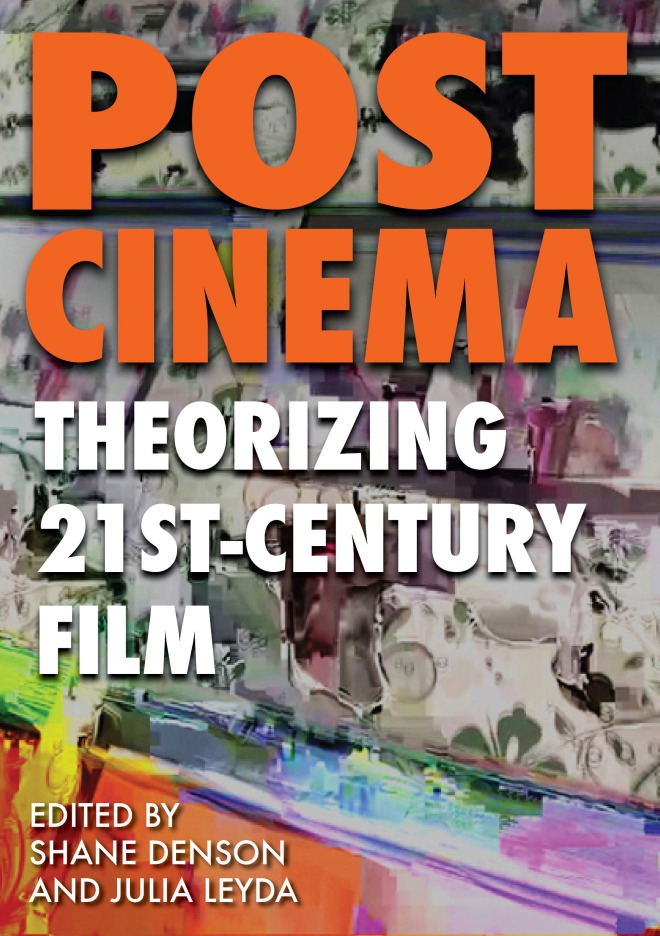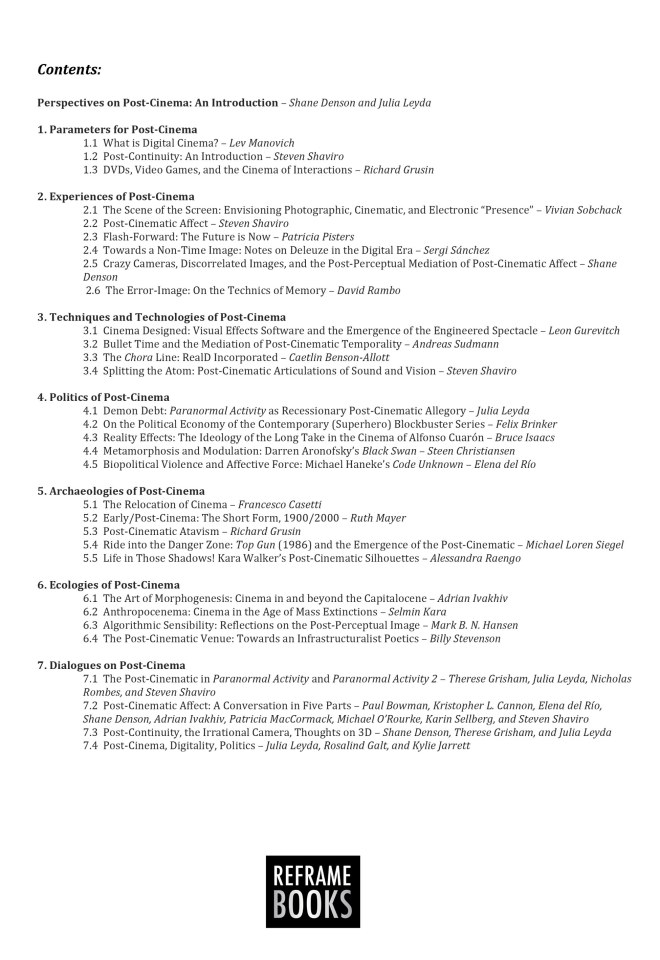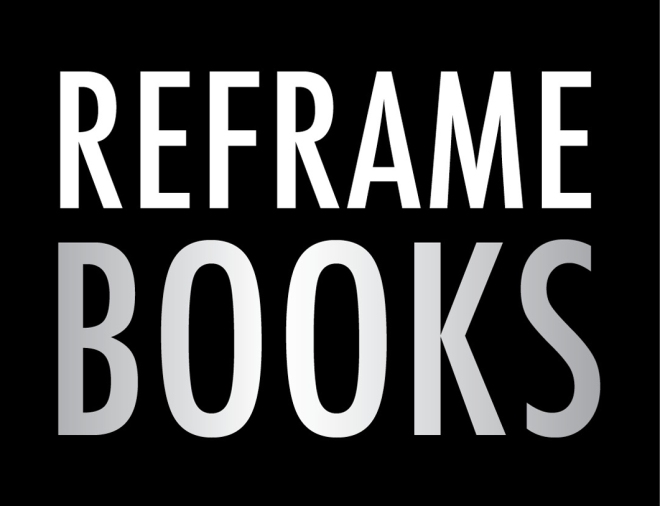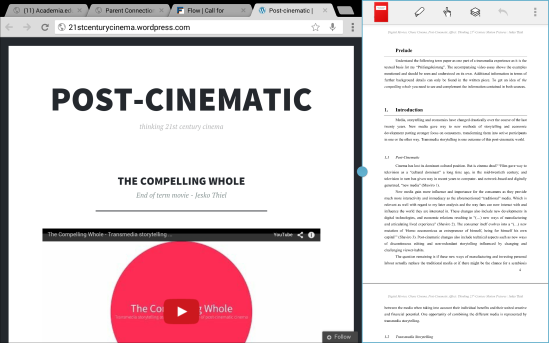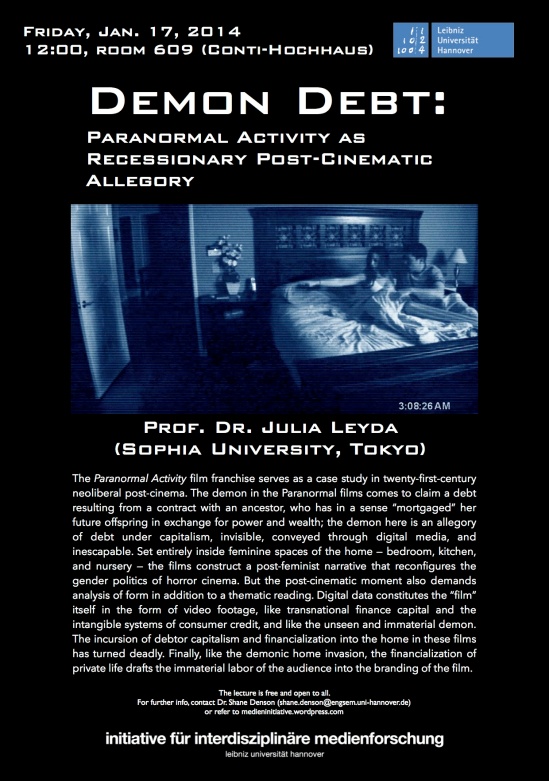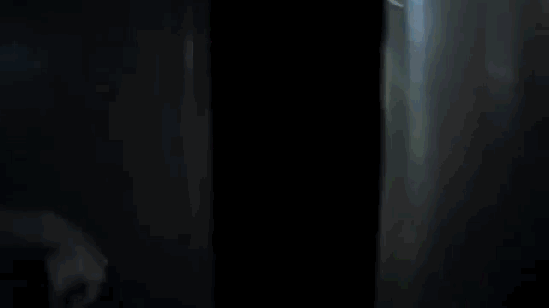
Post-Cinema: Theorizing 21st-Century Film is the working title of a collection of essays that Julia Leyda and I have proposed to REFRAME Books, a new branch of Catherine Grant’s open-access publishing ventures (you may know Catherine Grant, of Film Studies at the University of Sussex, from her excellent blog Film Studies For Free, while REFRAME includes the innovative journal Sequence and a variety of other great publications and platforms).
Our proposal has been well received by REFRAME’s reviewers, so if all goes well (i.e. pending review of the completed chapters) the collection should be appearing sometime in the near future. We are particularly excited to be working with REFRAME on this project, as this means that the book will appear in a variety of open-access formats (PDF, epub, Mobi), free of charge and freely distributable! Ours will be among the first full-length edited collections to appear with REFRAME, whose publications are sure to make waves in scholarly publishing in the coming years. We are very proud to be in on the ground floor!
While there is still quite a bit of work ahead of us on this project, and though not all of the details have been finalized yet, we couldn’t wait to announce the collection; we are very excited about the group of contributors we have assembled (more info soon), and we are confident that the volume will make an important contribution to the still emerging discussion of post-cinema.
According to an anonymous reviewer for REFRAME:
“The proposed collection promises to be a landmark publication by bringing together some of the most important critical essays that have discussed recent developments in film and media cultures and a number of original essays that develop in innovative ways the perspectives and provocations of those earlier interventions.”
We will do our best to live up to these high expectations, and we will be sure to provide further details about the project in due time!
